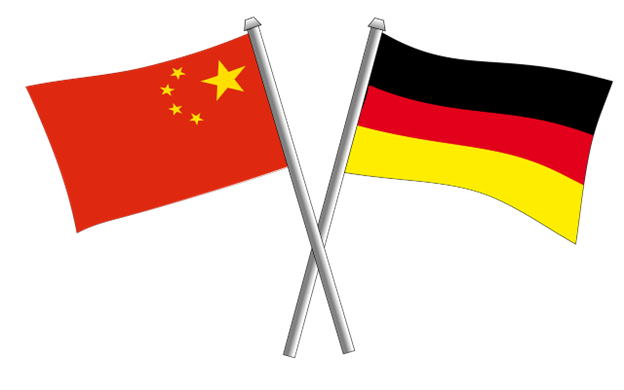Systemic rivalry between China and Western Europe is emerging as an issue in Germany and other EU nations. A 61-page, robust policy report examining China’s strategy in Europe was released recently using strong language toward Beijing. Joe Cacese, of the Jamestown Foundation, says that it emphasized the need for Germany, Europe’s largest economy, to reduce its dependency on China. Berlin is China’s largest trading partner. “The strategy reflects a compromise between Germany’s three ruling coalition parties, and a departure from Chancellor Olaf Scholz’s typically conciliatory approach to conducting business with the PRC”’ according to Cacese. The current administration in Germany has not altered its China trade policy in any significant way since taking over from Merkel’s. Chancellor Scholz, after last fall’s 20th Party Congress, traveled to Beijing to deliver a message. It was that Germany stands with China in the need to maintain strong economic ties.
Scholz ignored numerous national security concerns his own cabinet expressed when he authorized a deal to sell parts of the Hamburg port terminal to the Chinese shipping firm COSCO. He then claimed his downplaying or “derisking” of the China trade issue was justified because Germany had already diversified its supply chains. The “International Cooperation” portion of the German government report used strong language to emphasize the need for the EU to push back against Chinese pressure, saying “China is leveraging the political, military, and economic weight it has gained to pursue its interests on all continents and in international organizations, and it is working to reshape the existing rules-based international order according to its preferences.”
The report also called for maintaining the status quo in the Taiwan Strait and contended that an Indo-Pacific security crisis would also implicate the EU, stating that “security in the Taiwan Strait is of crucial importance for peace and stability in the region and far beyond.” To strengthen the German economy, the report also called for tackling Chinese disinformation as well as including a roadmap for diversification of trade partnerships. Cacase says is notable is that the country’s principal position on its China strategy “is almost explicitly at odds with Scholz’s previous remarks, as it emphatically warns the country that ‘de-risking is urgently needed.’” Germany began the first quarter of 2023 in an economic recession. Energy prices continue to rise with the loss of cheap energy from Russian sources. That raises the political risks for Germany’s political elite. Despite these factors the government report is playing an expanded role in the political discourse over China and pushing for a change in trade policy.
This report is a first step. Last week European leaders said, according to the German Marshall Fund, that the path to reducing dependencies on China will not be a straight one, but that de-risking has “become the prism through which Europe views its relationship with China.” Germany continues to send conciliatory messages to Beijing, including an announcement by German carmaker Volkswagon to invest $700 million in China’s electric vehicle group Xpeng in Guangzhou. It will give the German company a 5% market share and a seat on the board. French Finance Minister Bruno Le Maire visited Beijing last week further blurring the hard line that some European leaders are calling for with China. France, the second largest economy in Europe, also is lobbying to invest in China’s electric auto industry. AP reports that on the trip Le Maire “defended Paris’s controls on foreign access to technology after authorities said two Chinese citizens are under investigation for what news reports say is possible smuggling of French-made processor chips with military uses to China and Russia.” The punch-counterpunch between economic stability and politics continues as China pushes its BRI programs into Europe.
Daria Novak served in the U.S. State Dept.
